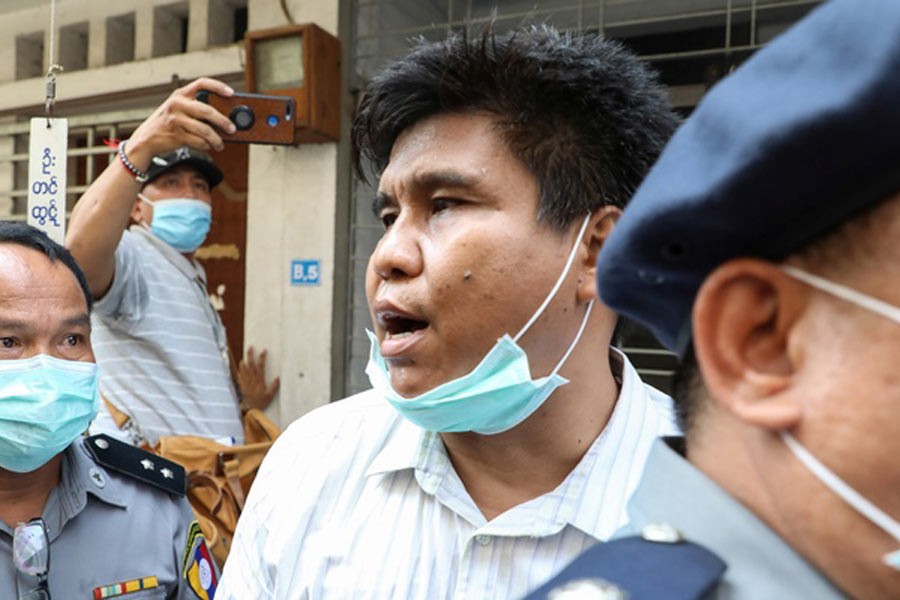A Myanmar court charged a journalist, who published an interview with the Arakan Army rebel group, under a terrorism law on Tuesday.
The court in the second largest city, Mandalay, charged Nay Myo Lin, the editor-in-chief of Voice of Myanmar, under sections of the Terrorism Act for conducting the March 27 interview with the Arakan Army in which it responded to Myanmar’s decision to label it as a terrorist group.
The country also blocked while website of the journalist and others that cover conflict in the troubled western Rakhine state of the country, reports Reuters.
Myanmar last week declared the Arakan Army a terrorist group after more than a year of intense fighting against the organisation, which recruits from the mostly Buddhist ethnic Rakhine majority and seeks greater autonomy for the region.
Nay Myo Lin’s lawyer, Thein Than Oo, confirmed the charges, which can carry a life sentence, but told Reuters he did not have any more details. The journalist’s wife, Zarni Mann, also confirmed to Reuters that her husband had been charged.
The Myanmar Times quoted Judge Kyaw Swa Lin as saying that Nay Myo Lin had been arrested over last week’s interview. An Arakan Army spokesman did not immediately respond to a request for comment.
Reuters was unable to contact the court to confirm the charges or to seek the reason they were brought. A government spokesman did not answer phone calls to request comment.
Myanmar’s communications ministry also said it had ordered mobile operators to block dozens of websites over “fake news”. It did not publish a list of the blocked sites but several prominent outlets covering the conflict in Rakhine were inaccessible on Tuesday.
Myo Swe, an official from the Ministry of Transport and Communications, told Reuters that websites had been blocked “because we received orders”, declining to elaborate.
“These websites are publishing fake news and news that can cause instability in the country,” he said. Websites carrying pornography were also included in the ban, he said.
Norway’s Telenor, one of four mobile operators in Myanmar, said in a statement that it had been ordered to block 221 websites and would comply, but added “we do not, and should not, select or alter the content of communications in our channel”.
Myanmar’s army has filed several cases in recent years against reporters and news organisations covering the conflict in Rakhine, where about 730,000 Rohingya Muslims fled a military crackdown in 2017.
Myanmar’s army filed a criminal complaint against Reuters in early March over a story about the conflict in Rakhine. It later said it would withdraw the complaint at the request of the Myanmar Press Council and in the interest of good relations with the media.


